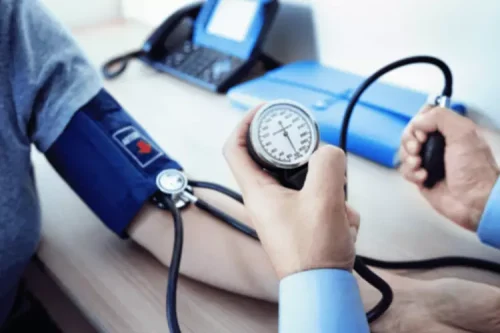
With effective help, people can learn to manage their symptoms, reduce their distress, and improve their ability to establish an alcohol-free lifestyle. Brain changes from chronic drug or alcohol use can persist years after a person quits. This is why individuals risk relapse even after long periods of abstinence, and despite a relapse’s potentially devastating effects.
- Early signs of alcoholism can include an increasing tolerance to alcohol, drinking to relieve stress or avoid problems, and experiencing cravings or a preoccupation with drinking.
- Getting help before your problem drinking progresses to severe alcohol use disorder can save your life.
Initial Treatment for Early Alcoholic Liver Disease
Yes, alcoholism can co-occur with other mental health disorders such as depression, anxiety, and bipolar disorder, often complicating the addiction and requiring integrated treatment. The transition from alcohol abuse to dependence involves a gradual increase in drinking frequency and quantity, leading to physical and psychological reliance on alcohol to function normally. Support groups and peer networks play a crucial role in the journey to recovery from alcoholism. Their goal is to provide a source of support and community for those in recovery, creating a space where experiences and challenges can be shared openly and without judgment.

Mental Health Services
So take a minute to read through the list – see where your current behaviors put you on the stages ofdisease progression…and what the future holds, unless you commit to changingyour path. Explore a variety of health care news & stories by visiting the Health Lab home page for more articles. Addiction does not Why Alcoholism is Considered a Chronic Disease occur because of moral weakness, a lack of willpower or an unwillingness to stop. This finding stems from decades of work investigating the effects of substance use on the brain.
How do I take care of myself?
- For example, some drugs have a structure similar to other chemical messengers in the brain, allowing them to bind to brain cells and release dopamine.
- The shift from a punitive to a supportive mindset is essential in fostering an environment where individuals feel safe to seek help.
- Seeking out and taking the substance becomes a near-constant activity, causing significant problems for them and their family and friends.
- After two to three weeks of abstaining from alcohol, fatty deposits disappear and liver biopsies appear normal.
These complications are reasons why it’s important to treat alcohol addiction early. Nearly all risks involved with alcohol addiction may be avoidable or treatable, with successful long-term recovery. At this point, it’s obvious to those close to you that you’re struggling. You might miss work, forget to pick up the kids, become irritable, and notice physical signs of alcohol abuse (facial redness, weight gain or loss, sluggishness, stomach bloating). Support groups can be a highly effective form of help at this stage. As harmful and debilitating as AUD can be for both the person with the disease and their loved ones, there are many approaches that you can take to manage the condition.
Symptoms include weight loss, fatigue, muscle cramps, easy bruising, and jaundice. Alcoholic hepatitis occurs when the liver becomes damaged and inflamed. Symptoms include fever, jaundice (yellowing of the skin), malnourishment, swelling, and accumulation of fluid around the liver. The Healthline FindCare tool can provide options in your area if you need help finding a mental health specialist.

In compensated cirrhosis, the liver remains functioning, and many people have no symptoms. Cirrhosis is considered end stage liver disease as it cannot be reversed and can lead to liver failure. Cirrhosis is further categorized as compensated and decompensated.
Recovery Coaching
The most destructive form of alcoholism is chronic alcoholism, an emotionally, socially and physically devastating disease. Alcoholism emerges from alcohol abuse, when there’s a pattern of drinking despite negative consequences. Alcoholism and alcohol abuse are both categorized as alcohol use disorders—affecting people of all ages and stages of life. The severity of the disorder lies on a spectrum, ranging from mild to severe dependence, also known as chronic alcoholism (although even a mild disorder can spiral out of control without early treatment). People who drink too much alcohol are at risk of developing a host of health conditions and disorders including certain types of cancer, liver disease, and heart disease. Excessive alcohol consumption can damage the brain and other organs, and it also increases the chances of developing sleep problems, depression, and other mental health problems.
- Group meetings are available in most communities at low or no cost, and at convenient times and locations—including an increasing presence online.
- Dopamine is a small chemical in the brain important for carrying signals from one brain cell to the next, similar to how a train carries cargo between stations.
- In this disorder, people can’t stop drinking, even when drinking affects their health, puts their safety at risk and damages their personal relationships.
- The affects can range from dementia and intellectual functioning to debilitating conditions that require long-term care, even if a person has been sober for a period of time.
Conditions
For individuals grappling with alcoholism, a wealth of resources and support systems are available to aid in the journey to recovery. Finding the right support group or resource can be a transformative step in overcoming alcohol addiction. Detoxification is the critical first step in the journey towards recovery from alcoholism. It involves a medically supervised process where the body is allowed to rid itself of alcohol while managing the symptoms of withdrawal. Detox must be followed by comprehensive treatment to address the underlying issues of addiction.

This stage is marked by the individual drinking to avoid withdrawal symptoms, rather than for pleasure or social reasons. For example, if you’re receiving treatment for a condition related to alcohol use, like cirrhosis of the liver, you should ask your healthcare provider about changes in your body that may be new symptoms. If you’re receiving counseling, ask your provider about handling high-stress situations when you may feel like you need some additional mental health support.


